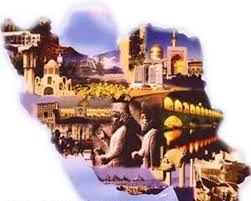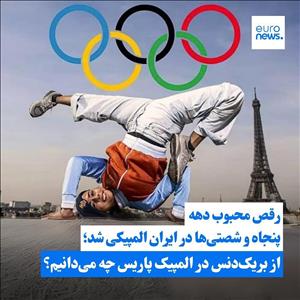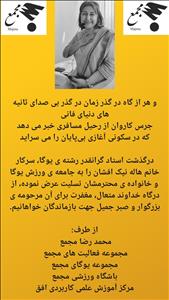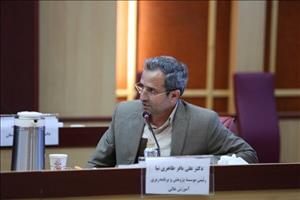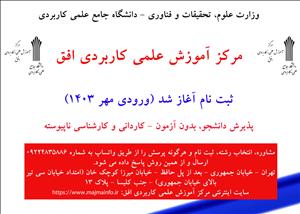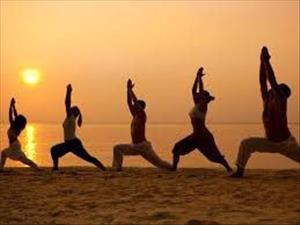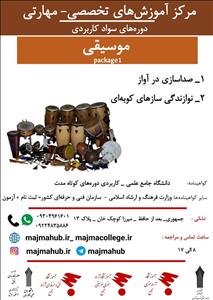ایران در یک نگاه

Islamic Republic of Iran
Ministry of Cultural Heritage, Tourism & Handicrafts
 |

 IRAN at a Glance
IRAN at a Glance


Official Name: The Islamic
Republic of Iran
Capital: Tehran
Official Language: Farsi ( Persian) Population : 86 Million
GDP : 359/713 m$ (2021) (Data world Bank) Area : 1,648,195 km2
Currency : Rial
(IRR)

Geography
The Islamic Republic of Iran located in West Asia .It’s
borded with Armenia, Azerbaijan, and Turkmenistan in North, Afghanistan and
Pakistan in East, Iraq in west and Turkey in Northwest .
In southern part the country is located by Persian Gulf and Oman sea .The country has been divided into five regions
including 31 provinces.
Climate
Iran
is known for its climatic diversity It enjoys climates out of the world’s 11,
ranging from arid and semi-arid in central part to subtropical climate along the Caspian coast and the Hyrcanian
forest in northern part.

Number of Country Inbound
and Outbound tourists during the years 2008-2022
|
Outbound Tourists |
Inbound Tourists |
Year |
|
5330096 |
2025263 |
2008 |
|
6269094 |
2116245 |
2009 |
|
7497822 |
2938054 |
2010 |
|
7919901 |
3353713 |
2011 |
|
6771444 |
3686739 |
2012 |
|
6392834 |
4889218 |
2013 |
|
7698072 |
4967703 |
2014 |
|
6620656 |
5236909 |
2015 |
|
8989125 |
4942014 |
2016 |
|
10321182 |
4866939 |
2017 |
|
7960016 |
7294823 |
2018 |
|
9215745 |
9107261 |
2019 |
|
1862785 |
1903419 |
2020 |
|
3070682 |
989430 |
2021 |
|
9311008 |
4108376 |
2022 |

|
Description |
Number of Units |
Number of Beds |
Percentage |
|
Hotel |
1470 |
168144 |
44/64 |
|
Apartment Hotel |
829 |
52959 |
14/06 |
|
Boutique hotel |
36 |
1441 |
0/38 |
|
Motel |
73 |
6166 |
1/64 |
|
Hostel |
1443 |
80764 |
21/44 |
|
Eco lodge |
3621 |
58932 |
15/64 |
|
Traditional lodge |
309 |
8277 |
2/20 |
|
Total |
7781 |
376683 |
100/00 |
|
Tourist Agencies |
5537 |
- |
- |
|
Tourist Guide |
13350 |
- |
- |
|
Roadside inn |
2233 |
6875 people admission capacity |
- |
|
Traditional cafe |
1142 |
7186 people admission capacity |
- |
|
Tourism complex |
871 |
3509 people admission capacity |
- |

Frequency of 3,4 and 5 star Hotels–2022
|
Description |
Number of Units |
Number of Beds |
|
3 star |
317 |
36909 |
|
4 star |
136 |
26441 |
|
5 star |
53 |
20773 |
|
Total |
506 |
84123 |
•  Air Lines:
Air Lines:
International Air Lines: 33
Domestic Air Lines: 20
•
Airports: Total
75
International Airports: 10
Ethnic and Cultural Diversity
tangibleOCSENU yb detsiL setiS
egatireH
Handicrafts & Handmade Art
Hospitality
Unique Ancient & Historical Sites Health Tourism


The Lowest
Tourism Cost
World Cities of Handicraft Safety


Incredible Architecture
Iranian Cities
Selected as Tourism Capitals
Pleasant Accommodation
![]()
Persian Gardens
Iranian Cities
Selected as UNESCO Creative
Cities
Rich Museums

The Highest Gains with the Lowest Coasts
|
 Ethnic and Cultural Diversity
Ethnic and Cultural Diversity
One of the most basic distinguishing
characteristics of Iran's tourism
this is one of the first
unique and distinct attractions that a foreign
tourist experiences when encountering Iran.
Each
of the ethnic, linguistic, cultural and artistic characteristics of Iranian
peoples has been a part of the identity of Iran and Iranians, which after several
millennia has been able to
maintain its life and adapt to different conditions.

 Hospitality
Hospitality
Experience the real sense
of hospitality You have never experienced elsewhere
The
Iranians are of such an affable nature as to warm your heart
and
make your travel
more off beat.


Legendary History & Civilization
•
home to one of the world’s oldest living civilizations
•
great many of
historical and urban settlements dating back to more than 7000 BC.

Experience a Pleasant Accommodation
•
the luxury accommodation experience in international hotels
•
restaurants with different nationalities and gyms and shopping centers,
•
traditional hotels
that once had valuable houses
(symbol of culture and architecture of each region)
•
experiencing hospitality in the traditional Iranian style.
 Incredible Architecture
Incredible Architecture
The Fundamentals of all Architectural Styles in the World
Iranian architecture features a great
variety, both structurally and aesthetically ,Rooting
in incredible variety of traditions and experiences.
 Rich Museums
Rich Museums
The Land of Golden
Rhytons, Glorious Cups &
Civilized Statues
Museums:
828 that offer a rich insight into thousands of years of national art
and culture.
National Museum of Iran; the country’s largest
museum in History and Archaeology, more than 80 years of activity, contains
300,000 objects in an area of more than 20,000 m2.
It
stands among the world’s most prestigious museums in term of grandeur, scale, diversity and quality of its huge monuments.
 Health Tourism
Health Tourism
Medical Tourism
•
Medical Equipment
•
Skillful & Experienced Doctors
•
Suitable Services & Advanced
Treatments
•
Cost-effectiveness of Medical Costs
& Services
Wellness & Curative Tourism
•
Mineral springs
•
Salt Caves and Salt Lake
•
The beaches
•
Deserts
•
Mudflows
Traditional Medicine
& Medicinal Plants
•
With a history
of several thousand
•
more
than 8,000 plant species (of which more than 2,300 species are medicinal and
1,727 species are specific to the native regions of Iran
Medical Tourism
The advantages of Iran in Health tourism
Since Iranian
medical tourism holds a very rich history and provides quality services,
affordable prices along with various
historical, cultural, natural and recreational attractions, it has enough
qualifications to attract health tourists from the region and around the world.

Traditional medicine
and medicinal plants
Due to its geographical and climatic diversity, Iran is a land covered
with unique landscapes and natural
landscapes, beautiful beaches of the Caspian Sea in the north, the Persian Gulf
and the Sea of Oman in the south, vast Hyrcanian forests in the north to
mangrove forests (mangroves) on the southern coast, mountainous areas in the
west and unique desert areas in the center and western margin, The Lut Desert,
known as the largest clogged city in the world, with its international
wetlands, caves, waterfalls and mineral springs.
With a history
of several thousand
years and in accordance with scientific and experimental principles, the traditional Iranian
medicine is the result of great efforts such as Ibn Sina, Razi, Jorjani, etc.,
who led medical universities in the West and East for about eight centuries.
Cultivation of various medicinal and aromatic
plants has always been a part of Iranian customs and traditions. Since Iran holds eleven of the thirteen
world-known climates, it has a special
place in terms of the diversity of medicinal plants.
Due to the diversity of climate, more than 8,000 plant species have been identified in Iran, of which more than 2,300 species
are medicinal and 1,727 species are specific to the native regions of Iran.
Medical
Tourism
1 Medical Equipment
|
Doctors
Iran is
famous for its up-to-date and modern hospital equipment and medical engineering. Hospitals,
treatment centers and specialized laboratories in Iran are equipped with a wide
range of advanced technologies and advanced medical technology and the most
modern hospital equipment, including scanning, surgery, intensive care and advanced
laboratories in providing
diagnostic and therapeutic services and hospitalization.
Iran
is known for having experienced and skilled doctors. Today, the level of
knowledge and services of Iran’s physicians in the field of treatment and
health care is such that patients from all over the world can consult with
Iranian physicians about the steps and way of treatment and choose the best
treatment options for their travel plan. The Iranian medical team will
accompany the patient from the time of
the patient›s arrival until the final recovery and, if necessary, after
returning to the place of their residence
Medical Tourism
3 Suitable Services
4 Advanced Treatments
|
As a
medical tourist in Iran, you are considered as a VIP patient, you will never
have to wait to find a specialist doctor and a suitable hospital; Everything
you may need is provided before you reach your destination.
It is
noteworthy that Iran has significant capacities in fundamental cells and Iran
offers a wide range of medical services in the fields of beauty and treatment,
including facial and limb beauty, cosmetic dentistry, infertility, alopecia
surgery, orthopedics, heart surgery, ophthalmology. Furthermore, it completely
covers the diagnosis and treatment of various types of cancer, tissue and organ
transplants, neurosurgery, spinal cord injuries and many other medical
services.
Cost-effectiveness
of Medical Costs and Services on a global
and regional scale is one of the important advantages of Iran in medical tourism.

of medical
tourism in Iran
•
Tehran, the heart of the Middle
East
•
Shiraz, the center of liver transplantation in the Middle
East
•
Yazd, the center of infertility treatment in the Middle
East
•
Mashhad
•
Border provinces of Iran

•
Southern Khorasan
•
KhUzestan
•
Ilam
•
Hormozgan
•
Gilan
•
Eastern Azerbaijan
•
Northern Khorasan
•
Mazandaran
•
Kurdistan
•
Kermanshah
•
Golestan
•
Ardebil
•
Western Azerbaijan
Wellness and curative tourism


Mineral springs
In Iran, there are more than hundreds of hot and cold mineral
water springs with different compounds located
in most parts of the country. Iran's
hot springs have significant
geochemical diversity and have the ability to relieve and improve nerve,
rheumatic, joint, muscle and skin diseases. Thus, they are used as a
complementary treatment. In addition to its therapeutic properties, the
location of these springs in areas
with natural effects and picturesque views and pleasant climate as well as
traditional and modern accommodation facilities and various services, Iran has
always been the focus of many health tourists who annually travel to these
areas.
Salt Caves
and
Salt Lake
Iran has become a suitable destination for
salt therapy and improvement of respiratory and skin diseases for health
tourists for the sake of the existence of Urmia Salt Lake and salt caves
including Garmsar salt cave, … . Lake Urmia, which has one hundred two large
and small islands in its heart, is the second
Salt Lake in the world, whose shores, salts, sludge and algae are effective in
improving skin diseases and rheumatism.


The beaches
The seashores of Caspian lake in the north
and the navy blue seacoasts of Persian Gulf and Oman sea in the south of Iran
have created a unique situation of health tourism in Iran including helping
promote health and the immune system, strengthening muscles and relieving
stress and absorbing the rare elements of the sea, and curing diseases by swimming in the warm
sea water, walking on the beach and relaxing on the hot sands.
Mudflows
Mudflow is a natural phenomenon in which mud
reaches the surface of the earth in the form of springs from the ground. When they accumulated on top of each
other, they form small and large cones due to the presence of minerals and
organic matters in the mud. Eucalyptus is effective as a complementary
treatment for the treatment and cure of many skin diseases, vasoconstriction,
joint pain, back pain and muscle stiffness. More than half of the world's about
800 volcanoes are located around the Caspian
lake and the Sea of Oman. In the meantime, Pirgol Khash mudflow is the
only offshore golf and the largest golf in Iran, and the coldness of the mud of
this mudflow is another strange and unique point..

Deserts
Iran's deserts attract many tourists for the
sake of their therapeutic and recreational potentials such as sand therapy and
sun therapy and meditation, starry sky observation and long walks on warm sand,
and recreational facilities such as camel riding, safari, zip line attract many
tourists.
The largest sand dunes in the world in Reagan
region in Kerman province is a unique attraction in the field of health tourism
tin which tourists sleep on the sand and gradually absorb the heat of desert
sand, which is effective in improving skin and joint diseases.
Egyptian desert, Lut desert , Maranjab
desert, Helwan desert, , Zardgah desert named the greenest desert in Iran,
Matin Abad desert, Varzeneh desert with the largest desert recreation site in
Iran, Zarrin sand desert is one of the most beautiful sand dunes in Iran,
Shahdad desert with flowing sands and amazing
phenomena of high ridges caused
by years of water and wind erosion,
Gandum Briyan plain as
the warmest Ground point, volcanic cones, high sand pyramids, vast areas of
gray and brown sand dunes, wavy sand dunes and the highest sand
![]()
Iranian Handicrafts & Handmade Art
•
Receiving 358 Seals
of Excellence for
Handicrafts in 8 courses
• 299 Fields in Handicrafts, classified in 18 group
28 www. tiran.ir
![]()






Ecotourism Potentials (Magic of Iran’s
Nature)
Nature lovers and interested people can enjoy
visiting natural parts of the world, a splendid
destination.
The
exemplary geographical and seasonal diversity of Iran has provided very
different species of flora and fauna thus paving
a way for the country to avail the benefit of being one of the few countries
in the world with such a rich
biodiversity.
![]()
have been registered in UNESCO
§ Arjan Protected Area and Lake Parishan
§ Geno
§ Golestan
§ Hara
§ Kavir
§ Lake Oromeeh
§ Miankaleh
§ Dena
§ Tang -e- Sayad & Sabzkuh
§ Hamoun
§ Kopet Dag
3 Geoparks of Iran
in the
UNESCO Global Geoparks
Tabas
UNESCO Global Geopark
Qeshm Island
UNESCO Global Geopark
Aras
UNESCO Global Geopark
Tourism Capacities in Kish Island
•
50 hotels
•
More 16263 beds
•
3 ,4 & 5 star hotels
•
International airport
•
Trade – Industrial Free zone
•
Natural and man-made attractions
Tourism Capacities in Qeshm Island
•
56 HOTEL with 6344 beds
•
104 Eco-lodge with 3358 beds
•
First Geo-park in th-e-- Middle East
•
International airport
•
Trade – Industrial Free zone
•
Natural and man-made attractions
![]()
![]()
Delicious Foods
Tasty Foods
Enshrined in the Aura of History
Iran
as a large country embracing different ethnicities with different cultures , so diverse
in culinary that every
city enjoys a large variety of a number of delicious and tasty foods unique to that area.
3 Iranian frozen
desserts
in the list of the world’s
50 best frozen
desserts released by Taste Atlas
Bastani sonnati
Bastani sonnati
is a unique saffron-infused Iranian ice cream that was invented at
the beginning of the 20th century by Akbar Mashti, the first ice cream vendor
in Tehran. This frozen treat
is made with a creamy mixture
of milk or cream, frozen custard, and sliced pistachios.
It is flavored with rose water and saffron and traditionally
incorporates salep, an ingredient
extracted from wild orchids. The vibrant yellow color and exotic flavors make bastani one of the favorite
Iranian sweets. Iranians prefer to enjoy it in individual bowls, sprinkled with
shredded pistachio, or served
within two plain wafers, when it's known as bastani nooni ice cream sandwich.
Havij bastani
Havij bastani is a delicious and unusual Iranian take on an ice cream
float. This refreshing dessert combines fresh carrot juice and a scoop of ice
cream, preferably vanilla-flavored or more traditional saffron-infused version.
Often considered as both a beverage
and a dessert, havij
bastani can be sipped or eaten with a spoon.
It is always served in a glass, and it is usually topped with crushed
pistachios, as well as cardamom or cinnamon.
Faloodeh
Iranian faloodeh is a traditional sorbet which consists of frozen sugar
syrup infused with rose water and mixed with thin vermicelli noodles. According to popular belief,
faloodeh originated in Shiraz and is one of
the first sorbet varieties in the world, dating back to 400 BC.
In Iran, it is usually served drizzled with fresh lime juice, chopped
pistachios, or sweet cherry syrup, and enjoyed as a refreshing summer dessert.
![]()
1192 Tourism Events
•
Festivals, rituals,
events, and traditions are among the variety of interesting factors to make a
distinction.
![]()
![]()
Land of Four Seasons
Iran; Image of Global Climate
Iran enjoys 11 out of the world’s
13 most-known climatic conditions.
![]()
Adventure
![]()
![]()
 Persian Gardens
Persian Gardens
The Paradise on Earth
They are so remarkable that nine gardens
out of great many are inscribed on UNESCO World Heritage List.
These 9 gardens
exemplify the diversity
of Persian Garden
designs that evolved
and adapted to different
climate conditions.
 Religious tourism
Religious tourism
Iran
host to religious monuments of different religions like Christianity,
Zoroastrianism and Jewish holy places. There the pilgrims can find a
combination of flourished Iranian- art and culture, magnificent architecture,
decoration and art work . They welcome millions of the pilgrims from around the
world annually.
|
Tabriz
2018
Tourism
Hamadan
2018
Capitals
Sari
2022
by International Organizations
Ardabil
2023

 Hamadan
Hamadan
ACD City of Tourism in 2018
Sari
ECO Tourism Capital in 2022
Tabriz
OIC City of Tourism in 2018
Iran World Cities of Handicraft
14
cities and villages
inscribed in WCC
Mashhad World Craft
City For Gemstones
Tabriz World Carpet
Weaving City
Kalporagan World
Craft Village For Hand-made Pottery Lalejin World Craft City For
Pottery
Abadeh World Craft City For Woodcarving (Munabbat)
Marivan World Craft
City For Kelash (Footwear/ Kind of Giveh)
Stitching
Sirjan World Craft
City For Kilim
Meybod World
Craft City For Hand-Woven Floor
Covering (Zilu) Isfahan World Craft City
Khorashad World Craft
Village For Towel
Weaving (Tow-Bafi) Shiraz World Craft City
Zanjan World Craft
City For Filigree
Malayer World city for Woodcarving and Carved-Wood Furniture Ghasem Abad World
Village of Chador-shab Weaving
 Isfahan
Isfahan
WCC - World Crafts
City 2015
•
one of the most important
ancient cities of Iran, historical precedence of Isfahan dates back to the third millennium BC.
•
It was the first Iranian
place included in WIPO for its different and vast artistic fields which are more than 130 until now.
•
In this city-museum
and its jewel(Imam squar), the biggest
production and supply market of handicrafts in Iranian territory can be
seen.
•
With over 60 fields,
ispahan is known as the first in the country
from the
aspect of quantity and variety of the fields.
•
over 15000 workshops and more than 20000 artisans.
•
The most important
existing fields in Isfahan: engraving, inlaying, enameling,
traditional tile-making , etc.
Tabriz
WCC – World Hand-Woven Carpet City 2015
•
Tabriz was chosen as the 2018 Capital of Islamic Tourism.
•
Tabriz is considered as one of the major
and important Carpet weaving cities of the world.
•
With a variety of styles, recently
combined with new technics,
it has been the favorite
choice of the market for its floriferous, colorful and inestimable.
 Mashhad
Mashhad
WCC
- World Gemstones City 2016
•
with 39 known different varieties of gemstone
•
More than 16 thousand
registered artisans are busy in the
field in nearly 500 different workshops.
•
With 9 tons of
exploitation a year, Agate (Aghigh) is the most popular gemstone, following by 5 tons of turquoise (Firouzeh).
•
Mashhad has
about 90 percent of gemstone workshops of the country
Lalejin
WCC - World Pottery
City 2016
•
situated only 25 kilometers away from Hamadan,
the ancient
capital of Iran.
•
this place is famous
for its unique ceramic and pottery handicrafts art, as it is known as the
Capital of Middle-East Pottery.
•
About 80
percent of the nearly 20 thousand residents of Lalejin are busy in the field of pottery in about one thousand workshops.
•
In Lalejin, 5000 types of potteries are produced in 28 general
categories.
Kalporagan
|
Sirjan
WCC - World Kilim City 2017
Originates back to 7000 years ago.
•
The art of pottery
without any pottery
wheel has been inherited
orally from one to another without any changes since then.
•
Kalpouregan Pottery
museum established in 2009 as a living museum
•
The village hosts around
20 to 25 thousand tourists
every year.
•
With 12 thousand active
weavers
•
a great
diversity of techniques such as Shiriki Kilim which is unique
hence every weaver uses their own personal tastes.
•
Motifs, combination and colors of each craft will be
non-repetitive hence. it reflects
thoughts and feelings of the artisan, inspired from nature, environment, believes, habits and traditions.
•
The history of this technique in Kerman &
Sirjan region goes back to
the
Safavid era.
 Abadeh
Abadeh
WCC - World Monabbat
City 2018
•
its origin goes back to 1000 B.C.
•
The most traditional style of Iranian
woodcarving is done in Abadeh.
•
This small city is known as the birthplace of Munabbat-kari art in
Iran and the world
•
Abadeh woodcarving style can be classified as “low relief”
•
One of the most famous woodcarving products that produced
in Abadeh, is wooden spoons which called “sherbet spoon”.
Marivan
WCC - World Kalash
City (Footwear/ Kind of Giveh)2017
•
With more than 10000 artisans
•
was designed as the “ NATIONAL
Kalash weaving city”
in 2016
•
more than 3000 active
workshops in the field of weaving
•
Wearing Kalash
due to its lightness, comfort, dynamic air flow, strength, flexibility and compliance with mountainous areas as well as its
ceremonial importance along with local outfit, is generally considered as historical tradition and pat of local identity
in Marivan and Kurdish areas.
•
With an equal design for right and left side
•
Most of the raw material is domestic and Klash is totally handmade.
Khorashad
WCC
- World Tow-Bafi
Village 2018
Meybod
WCC - World Zilou City 2018
![]()
•
a small Village at east of Iran, South-Khorasan Province.
•
This village
was designed and registered as the first
village of handicrafts destination in iran
•
Toe-Bafi is the skill
of producing a variety of traditional cotton or silk cloth (fabric).
•
With a production of at least 1200 square meters
per day, this product is the bestselling handicrafts production of the
province after carpet and rug.
•
Maybod is probably the origin of Zilou
weaving art(one of the oldest
types
of hand-woven carpet
in iran)
•
Production process
is complicated but the colors
are so simple with minor
variance.
•
There is a possibility to use both sides of Zilou with two completely different appearances.
•
The most important characteristics of zilou is its herbal
material
•
famous as “Health carpet”
( Zilou does not cause static
electricity, does
not
produce aerosols, does not cause skin allergy).
•
It is estimated that more than 500 Zilou weavers live in Maybod
now.
•
This city has training
workshops, also a museum about Zilou. About
50 precious Zilous are kept in
the museum and the eldest one is
from the 15th century.
Shiraz
WCC - World Crafts
City 2019
Zanjan
WCC - World Malileh
City 2019
prosperity in Shiraz.
•
Shiraz is internationally renowned
for its inlaid art which is the main focus of handicrafts activity in
shiraz after weaving crafts.
•
13000 personal small workshops are active in shiraz
•
One of the most important handicrafts and metal arts of Zanjan
•
Many active workshops in the fields
of silver Malileh
Kari
•
A large number of Malileh Karies are kept on Louvre, Hermitage and Metro Politan
•
Registrered as the “National
Malileh City” by the National Evaluation Council” in 2018
Malayer
WCC - World Monabbat
City 2019
Ghasem Abad
WCC - World Chadorshab Bafi Village 2019
•
The existence of a large inlaid furniture market
in the city
•
The existence
of more than 200 private
shops and furniture exhibitions.
•
The birthplace of Chador-Shab Bafi
•
Chador-shab
motifs are the perfect reflection of the region’s natural surrondinds and
cultural heritages(animals, plants, objects used in everyday life.
•
The unique
motifs and the weaving technics (upside down)has made chadorshab distinguished
from the other fabrics produced in other provinces.
5 Iranian Cities
Selected as UNESCO Creative Cities(UCCN)
Out of
295 city
90 country
worldwide
Rasht
The
Creative City Of gastronomy (2015)
Isfahan
Creative City of Crafts
and Folk Art (2015)
Bandar Abbas
city
of “Crafts and Folk Art” (2019)
Sanandaj
city of “Music” (2019)
Kermanshah
The
Creative City Of gastronomy (2021)
 Rasht
Rasht
The Creative
City Of gastronomy (2015)
it could
be a perfect choice for people who have good
appetite.
![]()
 Sanandaj
Sanandaj
city of “Music” (2019)
Iran’s
western city of Sanandaj for its contributions to music and southern city of
Bandar Abbas for crafts and folk art inscribed
in UNESCO.
 Kermanshah
Kermanshah
The Creative City Of
gastronomy (2021)
•
Kermanshah has
been recognized as he 37th creative city of gastronomy by UNESCO.
•
Kermanshah Province
in western Iran has about 80
types of food, 11 types of bread, 20 types of pastry, and various kinds of snack.
![]() Iran is the sixth country
in the UNESCO world list
Iran is the sixth country
in the UNESCO world list
By registering 21 intangible or spiritual heritages
Iranian Intangible
Heritage Prescribed on UNESCO list
21 intangible or spiritual
heritages have been registered in the UNESCO World List, of which 9 are multinational and 12 are mono-national.
1.
Radif of Iranian
Music(2009)
2.
Ritual Dramatic Art of Ta’ziye (2010)
3.
Pahlevani
and Zoorkhanei Rituals
(2010)
4.
Music of the Bakhshis
of Khorasan (2010)
5.
Traditional
Skills of Carpet
Weaving in Fars (2010)
6.
Traditional Skills
of Carpet Weaving
in Kashan (2010)
7.
Traditional
Skills of Building
and Sailing Iranian
Lenj Boats in the Persian
Gulf (2011)
8.
Naqqali, Iranian Dramatic Story-telling (2011)
9.
Qalishuyan
Rituals of Mashhad-e Ardehal in Kashan
(2012)
10.
Nowrouz(2016)
11.
Flatbread
Making and Sharing
Culture: Lavash, Katyrma,
Jupka, Yufka (2016)
12.
Chogan, a horse-riding game accompanied by music and Story-telling (2017)
13.
Art of Crafting
and Playing with Kamantcheh/Kamancha (2017)
14.
Traditional skills of crafting
and playing Dotar (2019)
15.
Pilgrimage
to the St. Thaddeus Apostle
Monastery (2020)
16.
Art of miniature (2020)
17.
National programme to safeguard the traditional art of calligraphy in Iran (2021)
18.
The skill of raising
silkworms and traditional silk production for silk weaving
(2022)
19.
Turkmen needlework art (2022)
20.
Yalda (2022)
21.
Making and playing
Oud (2022)
![]()
![]()
![]()
Art
of miniature
|
![]()
![]()
![]()
|
|
![]()
|
|
|
![]()
IRAN
One of the top 10 countries
with 26 sites registered in the UNESCO World
Heritage
26 Iranian tangible egatireH yb
detsiL setiS OCSENU
a
wide range of various types of properties from samples of urban engineering
and architecture to Bazaars, buildings,
etc .
1.
Tchogha Zanbil (1979)
2.
Persepolis (1979)
3.
Meidan Emam, Esfahan (1979)
4.
Takht-e Soleyman (2003)
5.
Pasargadae (2004)
6.
Bam and its Cultural Landscape(2004)
7.
Soltaniyeh (2005)
8.
Bisotun (2006)
9.
Armenian Monastic
Ensembles of Iran (2008)
10.
Shushtar Historical Hydraulic System (2009)
11.
Sheikh Safi
al-din Khanegah and Shrine Ensemble
in Ardabil (2010)
12.
Tabriz Historic Bazaar Complex(2010)
13.
The Persian Garden (2011)
13.
The Persian Garden (2011)
14.
Masjed-e Jame of Isfahan (2012)
15.
Gonbad-e Qabus (2012)
16.
Golestan Palace (2013)
17.
Shahr-i Sokhta (2014)
18.
Cultural Landscape of Maymand(2015)
19.
Susa (2015)
20.
The Persian Qanat (2016)
21.
Lut Desert (2016)
22.
Historic City of Yazd (2017)
23.
Sassanid Archaeological Landscape of Fars Region (2018)
24.
Hyrcanian Forests
25.
Cultural Landscape of Hawraman/Uramanat
26.
Trans-Iranian Railway
1
chogha
Zanbil
Khuzestan Province
1979
2
Persepolis
Fars Province
1979
3
Meidan Emam
Isfahan Province
1979
4
Takht-e Soleyman
West
Azerbaijan
Province
2003
5
Pasargadae
Fars Province
2004
6
Bam and Cultural
Landscape
Kerman Province
2004
 7
7
Soltaniyeh
Zanjan Province
2005
8
|
|
|
|
Armenian
Monastic Ensembles of Iran West-Azerbaijan
Province
2008
10
Shushtar
Historical Hydraulic System Khuzestan Province
|
Sheikh
Safi al-din Khanegah and
Shrine Ensemble Ardabil Province
2010
12
Tabriz Historical
Bazaar
Complex East-Azerbaijan
Province
2010
13
The Persian
Garden Province
2011
14
Masjed-e
Jame of Isfahan
Isfahan
2012
15
Gonbad-e Qabus
Golestan Province
2012
16
Golestan Palace
Tehran Province
2013
17
Shahr-i
Sokhta
Sistan & Balouchestan Province
2014
18
Cultural
Landscape of Maymand
Kerman Province
2015
19
Susa Khuzestan Province
2015
20
The Persian
Qanat
2016
21
Lut Desert
2016
22
Historical City of Yazd
|
Sassanid
Archaeological Landscape of Fars
Region
2018
24
Hyrcanian forests 2019
 25
25
The Cultural Landscape Of Hawraman/Uramanat Kurdistan/Kermanshah
2021
26
The Trans-Iranian Railway
2021
![]()
![]()
Among the beauties of the world
Select Iran






